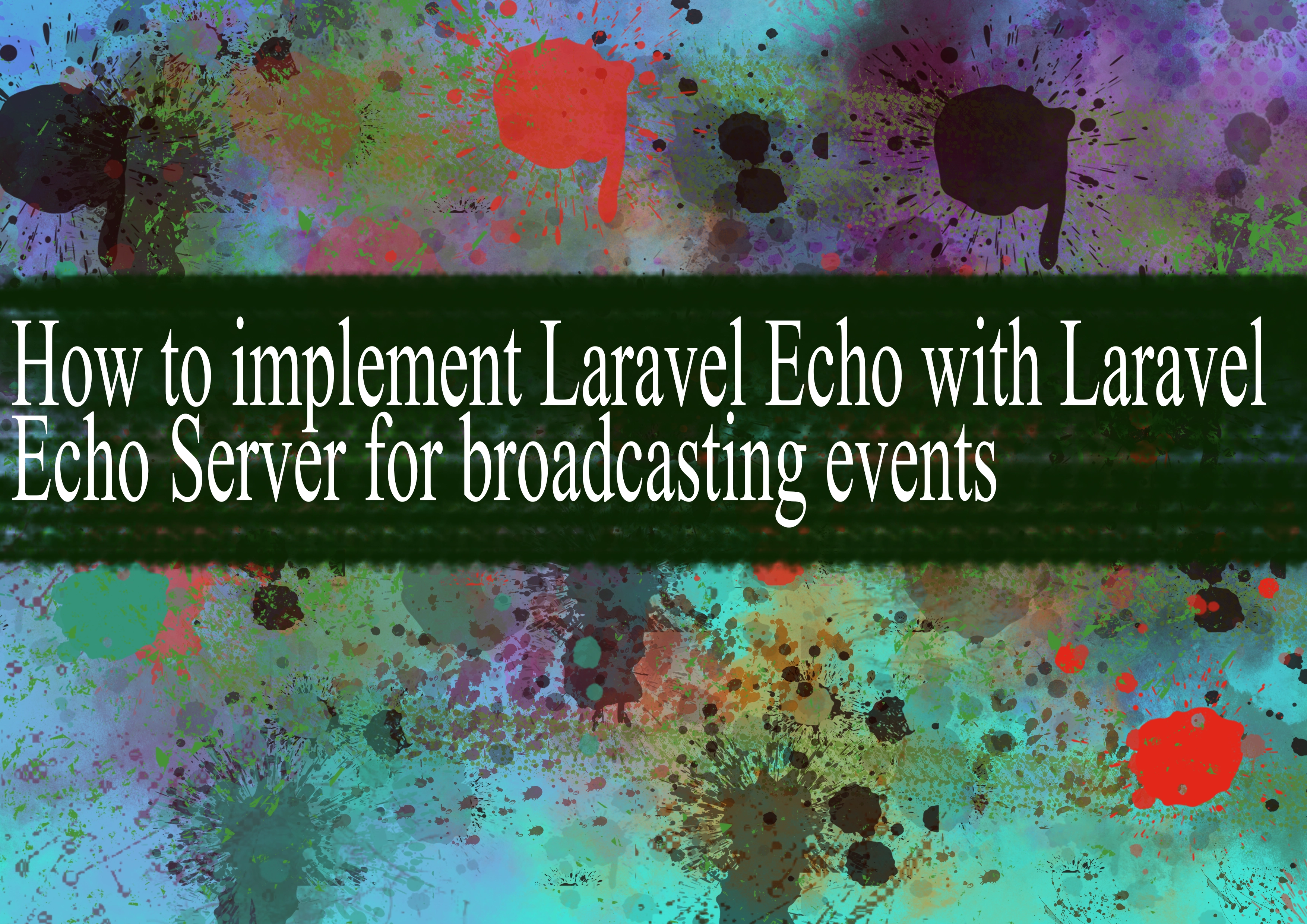How to implement Laravel Echo with Laravel Echo Server for broadcasting events

Laravel Echo is a JavaScript library that makes it easy to work with WebSockets and broadcasting events in a Laravel application. Laravel Echo Server is a Node.js server that can be used to broadcast events to the Laravel Echo library. Here's a step-by-step guide on how to implement Laravel Echo with Laravel Echo Server:
1. Install Laravel Echo and Laravel Echo Server
bash# Install Laravel Echo
npm install --save laravel-echo pusher-js
# Install Laravel Echo Server globally
npm install -g laravel-echo-server
2. Configure Laravel for Broadcasting
In your Laravel application, open the .env file and set the broadcasting driver to pusher:
envBROADCAST_DRIVER=pusher
Next, configure the Pusher credentials in the same file:
envPUSHER_APP_ID=your-app-id PUSHER_APP_KEY=your-app-key PUSHER_APP_SECRET=your-app-secret PUSHER_APP_CLUSTER=your-app-cluster
3. Configure Laravel Echo
In your Laravel application, create a new file resources/js/bootstrap.js (if it doesn't exist) and add the following:
javascriptimport Echo from 'laravel-echo';
window.Echo = new Echo({
broadcaster: 'pusher',
key: process.env.MIX_PUSHER_APP_KEY,
cluster: process.env.MIX_PUSHER_APP_CLUSTER,
encrypted: true,
});
4. Include Laravel Echo in Your Layout
Include the Laravel Echo and Bootstrap.js file in your layout or view:
html<script src="{{ asset('js/bootstrap.js') }}" defer></script>
5. Start Laravel Echo Server
In your terminal, run the following command to start Laravel Echo Server:
bashlaravel-echo-server start
Make sure to configure Laravel Echo Server by following the prompts. You'll need to set your Pusher credentials, app key, secret, cluster, etc.
6. Broadcasting Events
In your Laravel application, you can broadcast events using Laravel's event system. For example, you might broadcast an event when a new message is created:
php// In your controller or wherever you want to broadcast the event
broadcast(new NewMessage($message));
7. Listening for Events in JavaScript
In your JavaScript, you can listen for events and react accordingly:
javascriptEcho.channel('chat-room')
.listen('NewMessage', (event) => {
console.log('New Message:', event.message);
});
Replace chat-room with the channel you want to listen to and NewMessage with the name of the event you're broadcasting.
Additional Links:
- 1. Laravel Echo Documentation
- 2. Laravel Echo Server Documentation
- 3. Pusher Channels Documentation
- 4. Laravel Broadcasting Events
Make sure to check the documentation for any updates or changes specific to the versions you are using.
=== Happy Coding :)
-
Popular Post
- How to optimize for Google's About This Result feature for local businesses
- How to implement multi-language support in an Express.js application
- How to handle and optimize for changes in mobile search behavior
- How to handle CORS in a Node.js application
- How to use Vue.js with a UI framework (e.g., Vuetify, Element UI)
- How to configure Laravel Telescope for monitoring and profiling API requests
- How to create a command-line tool using the Commander.js library in Node.js
- How to implement code splitting in a React.js application
- How to use the AWS SDK for Node.js to interact with various AWS services
- How to use the Node.js Stream API for efficient data processing
- How to implement a cookie parser middleware in Node.js
- How to implement WebSockets for real-time communication in React
-
Latest Post
- How to implement a dynamic form with dynamic field styling based on user input in Next.js
- How to create a custom hook for handling user interactions with the browser's device motion in Next.js
- How to create a custom hook for handling user interactions with the browser's battery status in Next.js
- How to implement a dynamic form with dynamic field visibility based on user input in Next.js
- How to implement a dynamic form with real-time collaboration features in Next.js
- How to create a custom hook for handling user interactions with the browser's media devices in Next.js
- How to use the useSWRInfinite hook for paginating data with a custom loading indicator in Next.js
- How to create a custom hook for handling user interactions with the browser's network status in Next.js
- How to create a custom hook for handling user interactions with the browser's location in Next.js
- How to implement a dynamic form with multi-language support in Next.js
- How to create a custom hook for handling user interactions with the browser's ambient light sensor in Next.js
- How to use the useHover hook for creating interactive image zoom effects in Next.js